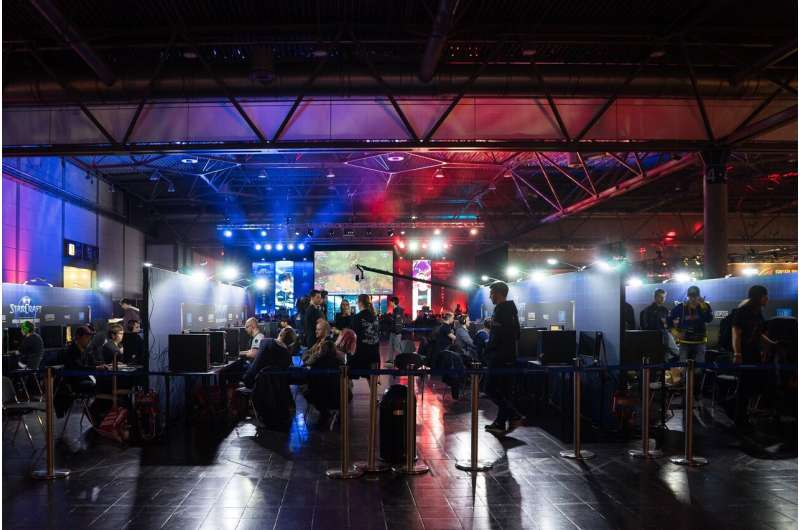This article has been reviewed according to Science X's editorial process and policies. Editors have highlighted the following attributes while ensuring the content's credibility:
fact-checked
peer-reviewed publication
trusted source
proofread
Pupil contraction indicates hidden cognitive fatigue in prolonged esports play across various skill levels

Fatigue plays a crucial role in safeguarding against overexertion by inducing feelings of tiredness and causing temporary reductions in physical and mental performance. However, according to a recent study in Computers in Human Behavior, esports (electronic sports) players, who are primarily engaged in cognitive tasks rather than physical activities, experience cognitive fatigue and judgment impairment before they consciously perceive the feeling of fatigue.
This phenomenon occurs irrespective of their proficiency level in esports. Pupillometry emerged as a potential neural marker for detecting the discrepancy between subjective and cognitive fatigue.
Although increased fatigue from physical exercise arises from various exercise-induced factors, it is assumed that the lack of dynamic physical exertion in esports would lead to a dissociation and players would exhibit cognitive fatigue before reporting heightened subjective fatigue sensations.
To verify this, the players used a virtual soccer game as an esports model and measured pupil diameter, an indirect brain activity indicator, over three hours of continuous play, examining the effects across players of varying experience levels.
The results validated this hypothesis and indicated that subjective fatigue did not increase until two hours, with a minor increase at three hours that did not correlate with cognitive fatigue markers. However, pupillary constriction, linked with declining judgment capabilities, was evident at two and three hours. This highlights a clear disconnect between subjective fatigue sensations and objective cognitive fatigue induced by extended esports gameplay, irrespective of player expertise level.
The findings of this study suggest that pupillometry could help raise awareness of the insidious cognitive fatigue that sets in before subjective fatigue becomes noticeable during intensive cognitive activities devoid of physical exertion cues.
Monitoring pupil constriction could serve as a useful neural marker for detecting cognitive resource depletion in mentally demanding virtual environments, as exemplified by esports professionals and other modern brain-based pursuits. Recognizing and mitigating the effects of this covert cognitive drain could help maintain optimal judgment capabilities.
More information: Takashi Matsui et al, Cognitive decline with pupil constriction independent of subjective fatigue during prolonged esports across player expertise levels, Computers in Human Behavior (2024). DOI: 10.1016/j.chb.2024.108219



















